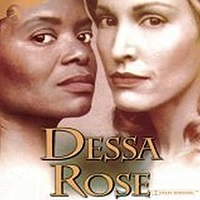 Original Off-Broadway Cast, 2005 (JAY)
Original Off-Broadway Cast, 2005 (JAY)  (4 / 5) Based on Sherley Anne Williams’ 1986 novel about the intertwined stories and gradual friendship of a Black woman and a white woman in the Antebellum South, Dessa Rose remains Lynn Ahrens and Stephen Flaherty’s most sweeping, ambitious score since Ragtime. It also makes for an epic cast album with a whopping 68 tracks and over two hours of material, including all dialogue (also by Ahrens) and all the necessary sound effects to convey the show’s dramatic events. Since Dessa Rose is heavily narrated by the title character (LaChanze) and Ruth (Rachel York), reminiscing in their old age, it’s easy to follow the plot from the recording once the two women meet and the show shakes loose its early flashback-within-a-flashback knottiness. As Dessa Rose, an enslaved woman willing to do anything to fight for her freedom, LaChanze, an early Ahrens and Flaherty muse (as in Once On This Island, a score that’s occasionally referenced here in some livelier ensemble moments), offers a gripping performance, especially in her Act One solos, “Something Of My Own” and “Twelve Children.” York is a terrific counterbalance as a prim Southern belle who opens her home and her heart to Dessa Rose and her companions fleeing slavery. Norm Lewis also gives a warmly winning performance as Nathan, who falls for Ruth, and Kecia Lewis sings the ballad “White Milk, Red Blood” movingly. Though the first act is rather exposition-heavy, and the longer soliloquies interrupt the album’s often-propulsive momentum, the show takes off in the second act once the two women turn against each other in a fiery pair of numbers, “Better If I Died” and “Just Over the Line.” It’s occasionally obvious that Dessa Rose shares its composer with Ragtime, but Flaherty ultimately carves out a tensely operatic sound for the score that stands alone among his works, powered by banjo-rich orchestrations courtesy of William David Brohn and Christopher Jahnke. (The rousing vocal arrangements are by Flaherty himself.) With its audio play expansiveness, the Dessa Rose cast recording makes for a compelling, powerful listen. — Dan Rubins
(4 / 5) Based on Sherley Anne Williams’ 1986 novel about the intertwined stories and gradual friendship of a Black woman and a white woman in the Antebellum South, Dessa Rose remains Lynn Ahrens and Stephen Flaherty’s most sweeping, ambitious score since Ragtime. It also makes for an epic cast album with a whopping 68 tracks and over two hours of material, including all dialogue (also by Ahrens) and all the necessary sound effects to convey the show’s dramatic events. Since Dessa Rose is heavily narrated by the title character (LaChanze) and Ruth (Rachel York), reminiscing in their old age, it’s easy to follow the plot from the recording once the two women meet and the show shakes loose its early flashback-within-a-flashback knottiness. As Dessa Rose, an enslaved woman willing to do anything to fight for her freedom, LaChanze, an early Ahrens and Flaherty muse (as in Once On This Island, a score that’s occasionally referenced here in some livelier ensemble moments), offers a gripping performance, especially in her Act One solos, “Something Of My Own” and “Twelve Children.” York is a terrific counterbalance as a prim Southern belle who opens her home and her heart to Dessa Rose and her companions fleeing slavery. Norm Lewis also gives a warmly winning performance as Nathan, who falls for Ruth, and Kecia Lewis sings the ballad “White Milk, Red Blood” movingly. Though the first act is rather exposition-heavy, and the longer soliloquies interrupt the album’s often-propulsive momentum, the show takes off in the second act once the two women turn against each other in a fiery pair of numbers, “Better If I Died” and “Just Over the Line.” It’s occasionally obvious that Dessa Rose shares its composer with Ragtime, but Flaherty ultimately carves out a tensely operatic sound for the score that stands alone among his works, powered by banjo-rich orchestrations courtesy of William David Brohn and Christopher Jahnke. (The rousing vocal arrangements are by Flaherty himself.) With its audio play expansiveness, the Dessa Rose cast recording makes for a compelling, powerful listen. — Dan Rubins

